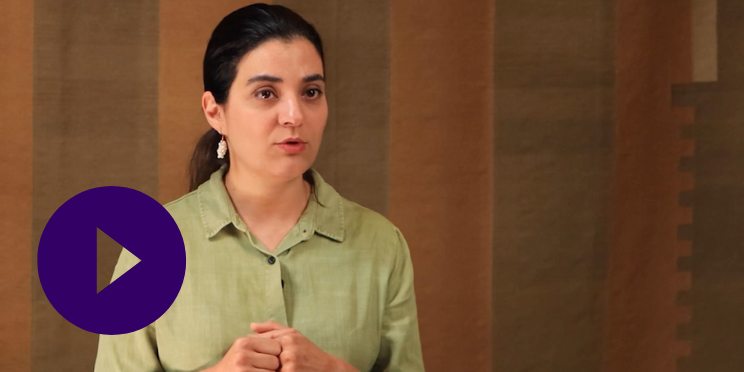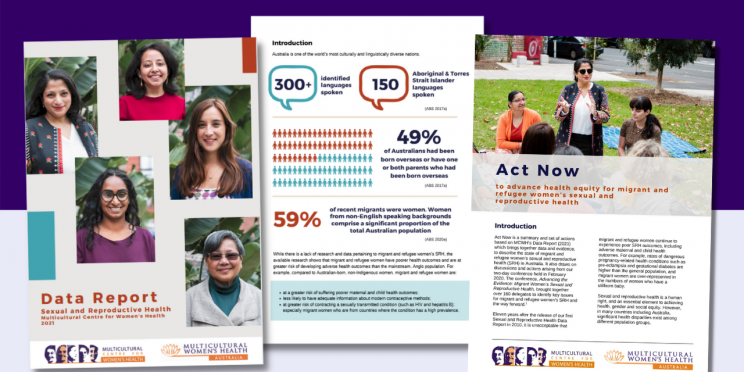MCWH promotes migrant and refugee women’s sexual and reproductive health through multilingual health education and information, research, training and advocacy.
Importantly, our national program, Multicultural Women’s Health Australia (MWHA), now allows us to reach women across Australia. Our work includes:
- Free national access to our multilingual women’s health information catalogue and library
- Leading a national network of health organisations that advocate for multicultural women
- Building and sharing the evidence base
- Family Planning and Reproductive Rights Education Program
- Policy input and health partnerships to reduce health inequity
- Cross-cultural professional development and training for health service providers
- Promoting awareness to end FGM/C globally in one generation.

Our work in sexual and reproductive health
Perinatal mental health videos in twenty one languages
MCWH’s response to the Ending the Postcode Lottery Senate Report
2021 Sexual and Reproductive Health Data Report and ‘Act Now’ Paper
Sexual and Reproductive Health Data Report
In 2010 we released our first Data Report on the state of migrant and refugee women’s sexual and reproductive health in Australia. Since then, we have updated our report twice (in 2016 and 2021). Despite ongoing issues with lack of data on migrant and refugee women’s sexual and reproductive health, the available evidence shows that migrant and refugee women continue to experience poor sexual and reproductive health outcomes, including adverse maternal and child health outcomes. For example, migrant and refugee women experience higher rates of pregnancy related conditions such as pre-eclampsia and gestational diabetes. Migrant women are also over-represented in the numbers of women who have a stillborn baby.
What does the data tell us?
- Migrant and refugee women experience a range of barriers to accessing culturally and linguistically appropriate information which limits their ability to manage their own fertility, contraceptive choices, and menstrual health
- Family violence and reproductive coercion intersects with migration-related inequity and discrimination
- Migrant and refugee women experience poorer maternal and child health outcomes than the general population. This includes mental health outcomes
- The health system is inequitable and migrant and refugee women continue to face barriers to access
- Migrant and refugee women are well placed to improve their sexual and reproductive health through preventative health education
Multicultural Women’s Health Australia (MWHA)
MCWH works with health services, community organisations and research groups to build on and improve what we know about migrant and refugee women’s experiences of sexual and reproductive health services.
We are proud to lead and co-ordinate a national network of services with a shared commitment to migrant and refugee women’s health. Our state and territory partners include:
You can read more about the experiences of migrant and refugee women’s sexual and reproductive health in our publication Common Threads.



